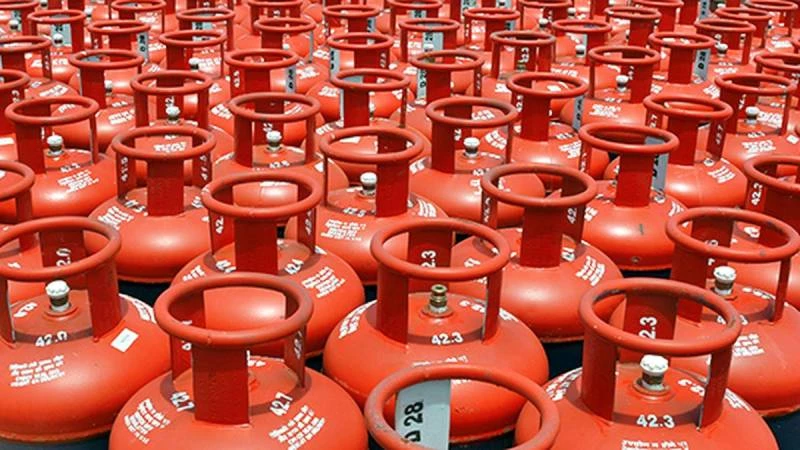LPG Prices Reduced by OGRA for August 2025 Amid Market Adjustments

In a move welcomed by both households and businesses across Pakistan, the Oil and Gas Regulatory Authority (OGRA) has officially announced a reduction in liquefied petroleum gas (LPG) prices for the month of August 2025. The adjustment comes in response to fluctuating international prices and government efforts to stabilize domestic energy costs.
The announcement was made via OGRA’s official circular, which detailed the revised pricing structure that will take effect from August 1, 2025. According to the document, the LPG prices reduced by OGRA will significantly ease the financial burden on lower- and middle-income consumers who rely on LPG for cooking and heating purposes.
Key Price Changes Announced by OGRA
Under the new pricing scheme, the per-kilogram price of LPG has been reduced by Rs 12.50, setting the new rate at Rs 240 per kg, down from Rs 252.50 in July. Consequently, the price of an 11.8-kg domestic cylinder has been revised from Rs 2,977 to Rs 2,832, delivering savings of Rs 145 per cylinder for consumers.
The move marks the third price revision in as many months, demonstrating OGRA’s ongoing responsiveness to shifts in the global and regional LPG markets. The LPG prices reduced by OGRA reflect both the drop in international benchmark prices and favorable import costs over the past few weeks.
Why Have LPG Prices Been Reduced in August 2025?
According to energy market analysts, a combination of factors contributed to the price drop:
-
Global Surplus in LPG Production: An oversupply in Gulf countries has created downward pressure on international LPG benchmarks.
-
Stable Exchange Rate: The relatively stable Pakistani rupee against the US dollar has made imports cheaper compared to earlier this year.
-
Government Subsidies and Tax Adjustments: Temporary tax relaxations and transport cost reductions also played a role in making room for the price cut.
As a result, the LPG prices reduced by OGRA are not just a technical adjustment but part of a larger policy framework aimed at shielding vulnerable populations from energy price shocks.
Impact on Domestic Consumers
Households that depend on LPG for daily cooking, especially in off-grid and rural areas, are expected to benefit the most from this reduction. For many low-income families, even a Rs 100–150 decrease per cylinder represents a tangible financial relief.
According to an official from the Ministry of Energy, “The move ensures that citizens, particularly in remote areas without access to piped natural gas, are not left behind during times of inflation.”
The LPG prices reduced by OGRA are expected to lead to an increase in LPG demand in rural districts, where alternatives such as firewood and coal are still in use due to affordability issues.
Commercial Sector Reactions
The commercial and hospitality sectors, which also rely heavily on LPG, have reacted positively to the news. Restaurant owners, roadside food vendors, and small businesses are expected to save thousands of rupees in operational costs over the next month.
A spokesperson for the LPG Distributors Association of Pakistan stated, “The price reduction is timely and will help businesses control inflation in food and beverage prices, particularly in the wedding season.”
The LPG prices reduced by OGRA could potentially have a trickle-down effect on the pricing of cooked food and consumer goods that rely on gas for processing.
Regional Pricing Variations
While OGRA has issued a uniform national price, actual LPG prices may still vary slightly depending on transport and distribution costs in different provinces. Typically, rates are slightly higher in Gilgit-Baltistan, Balochistan, and Khyber Pakhtunkhwa due to longer supply routes.
However, the LPG prices reduced by OGRA provide a benchmark that LPG distributors and retailers are expected to follow closely, under penalty of regulatory action.
Enforcement and Consumer Protection
To ensure transparency and prevent overcharging, OGRA has directed provincial authorities and local governments to monitor the implementation of the revised rates.
Mobile inspection units and complaint helplines have been activated, enabling citizens to report retailers who do not comply with the updated prices.
As a proactive step, OGRA has also made available a downloadable list of approved LPG dealers and their rates on its website to assist consumers. This further strengthens the credibility of the LPG prices reduced by OGRA and protects buyers from exploitation.
Economic Implications
While the immediate benefit is consumer-level savings, energy economists believe the decision will also have macroeconomic benefits:
-
Reduced Inflation Pressure: Lower energy prices often lead to a domino effect on food, transport, and manufacturing sectors.
-
Improved Industrial Confidence: Stable energy pricing supports investor confidence and business planning.
-
Boost to Rural Economies: Increased affordability could lead to greater LPG adoption in underserved areas, creating local demand and job opportunities.
The LPG prices reduced by OGRA thus not only support individual households but contribute to broader economic stability.
Potential Future Adjustments
Despite the welcome reduction, experts caution that LPG prices remain subject to international market volatility. Seasonal demand spikes, global political tensions, or exchange rate fluctuations could affect future pricing.
However, the Ministry of Energy has reiterated its commitment to maintaining consumer-friendly policies. A senior official noted that if global prices remain stable, further reductions may be considered in the September 2025 pricing review.
The LPG prices reduced by OGRA are therefore being viewed as part of an ongoing process rather than a one-off adjustment.
Public Reactions and Social Media Buzz
Public response to the announcement has been overwhelmingly positive. Hashtags like #LPGPriceCut and #Ogratakesaction trended on Twitter and Facebook as consumers shared relief and appreciation.
Many praised OGRA for timely action and called for similar transparency in the pricing of petrol, diesel, and electricity.
Social media analysts observed that the LPG prices reduced by OGRA have helped build public trust in the regulator’s role — a significant shift from past criticisms over price hikes and delayed decisions.
Conclusion
The LPG prices reduced by OGRA for August 2025 are a well-calculated move to support consumers during a challenging economic period. With this decision, OGRA has demonstrated its commitment to responsible energy regulation, equitable pricing, and long-term affordability for the average Pakistani household.
While market dynamics remain unpredictable, such reductions reinforce the importance of proactive governance in managing energy costs. As the nation continues its economic recovery, pricing policies like this will be crucial in maintaining household stability and supporting broader macroeconomic resilience.
The price adjustment may be temporary, but its impact is far-reaching — especially for those who feel the weight of every rupee saved.



